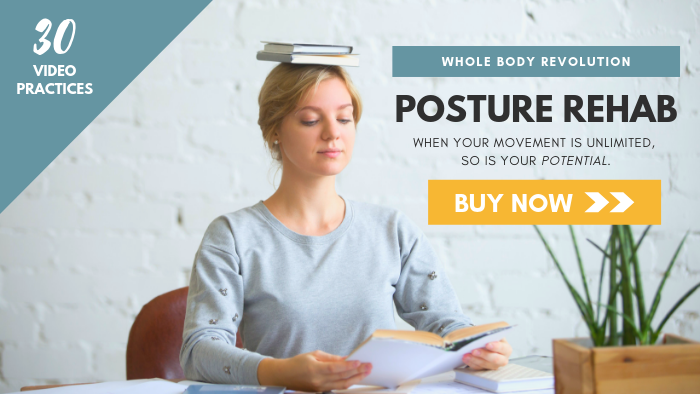Are your muscles tight all the time?
Maybe it feels like your spine is frozen in place. Or your hips tighten up no matter how much you stretch.
From chronically tight hamstrings to neck stiffness and pain, clients often ask me what causes muscles to tense up in the first place.
While there are many possible answers…
To get to the root of this issue, it’s important to first understand where muscle tension comes from.
Where Does Muscle Tension Come From?
If you Google “what causes muscle tension” you’re going to come up with a list of things like poor posture, overuse, exercise, or injuries.
While all of these can absolutely influence muscle tension, they’re really more of a symptom than a cause.
The reality is…
Muscle tension comes from your nervous system, a.k.a. your brain.
That’s it.
Muscles don’t just get randomly tight all over. They’re not out to get you.
Without some sort of animating force, a muscle is just a lump of tissue. I’ve never seen a steak jump off the plate and run for the door, and you probably haven’t either.
That’s because dead meat has no neural activity.
Cadavers don’t come to get you unless they’re in zombie movies because their brains are dead. There is no signal to tell the muscle to contract.
Which brings me to…
Your Muscle Tension Isn’t Happening To You
Clients often ask me why “it’s” so tight — a neck, a back, a hamstring, a hip.
This is a little bit of an odd question because, well, “it” is…YOU.
And you are not separate from your body.
(You are also not your body, but that’s a different discussion for a different day.)
Your body is an integral aspect of your lived experience. Basically, if you’re alive, you have a body. Period. End of story.
When you say “it just feels so tight,” you’re separating your tension from yourself. You’re giving away your power to influence the state of your body.
Words matter. They simultaneously convey and influence how you see yourself.
Because muscle tension begins in your nervous system, it’s within your power to release the tight muscles, too.
Muscle Tension Isn’t Your Fault
This conversation can be a tricky one. When I first bring a person’s attention to the fact that tension comes from you rather than happening to you, I often encounter resistance.
It’s easy to jump to the conclusion that I’m blaming you for your tension — but I’m not. Promise.
Just like you aren’t consciously carrying around limiting beliefs about yourself, you’re also not waking up and thinking, “Gee, what a beautiful day. I think a little neck tension and pain is in order this morning.”
If you were to work with a therapist and uncover that you’ve been holding onto a belief that you’re a terrible, no-good, unloveable person, your therapist (hopefully) isn’t going to leap out of her chair, point a finger at you and shout, “YOU IDIOT! YOU’RE SO STUPID FOR BELIEVING SUCH A RIDICULOUS THOUGHT!”
Silly, right?
Similarly, the reasons behind why we hold tension in our nervous system are subconscious. They could be related to an accident or injury, or even to an emotional trauma. Some muscle tension is learned and adapted from our caregivers and communities — we move like the people around us to signal belonging.
And, often, muscle tension is related to your thoughts and beliefs.
Sound crazy?
Just try saying these words out loud and pay attention to what happens to your neck, shoulders and breathing: I’m not good enough. I don’t have what it takes. Nobody loves me.
Yuck, right? It doesn’t feel so great.
Well, if you have these thoughts running on some level (and let’s face it, we all have some version of this going on in our heads or imposter syndrome wouldn’t be a thing), your muscles are GOING TO RESPOND.
Muscle tension is the physical manifestation of a thought or belief.
How to Let Go of Tight Muscles
The important thing to realize is that you have the power to release muscle tension — even if you’ve been holding onto it for decades.
How do you do this, you ask?
Great question. The answer is simple: move differently.
When you move in new and varied ways, you rewire your neural pathways. You send more data to your brain telling it that you need to be able to bend and twist in these ways.
And movement can even influence your thoughts – bonus!
The mind-body connection is a two-way street. When you release muscle tension, your body signals your brain to relax, too.
And then you not only move more comfortably with less pain, but you also feel calmer, happier and more centered.
Of course, shaking off habitual movement patterns is easier said than done. While it’s not complicated, it does take practice.
That’s why I created the Posture Rehab system to teach you how to reset your nervous system using intentional movement.
It’s not exercise. It’s not yoga. It’s an entirely new take on life.


Leave a Reply